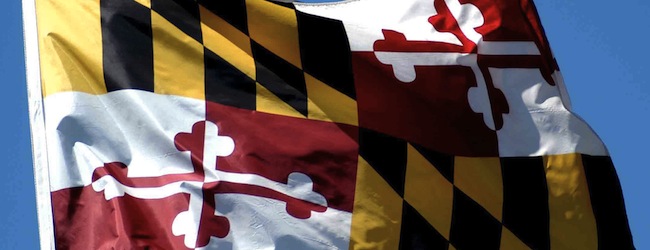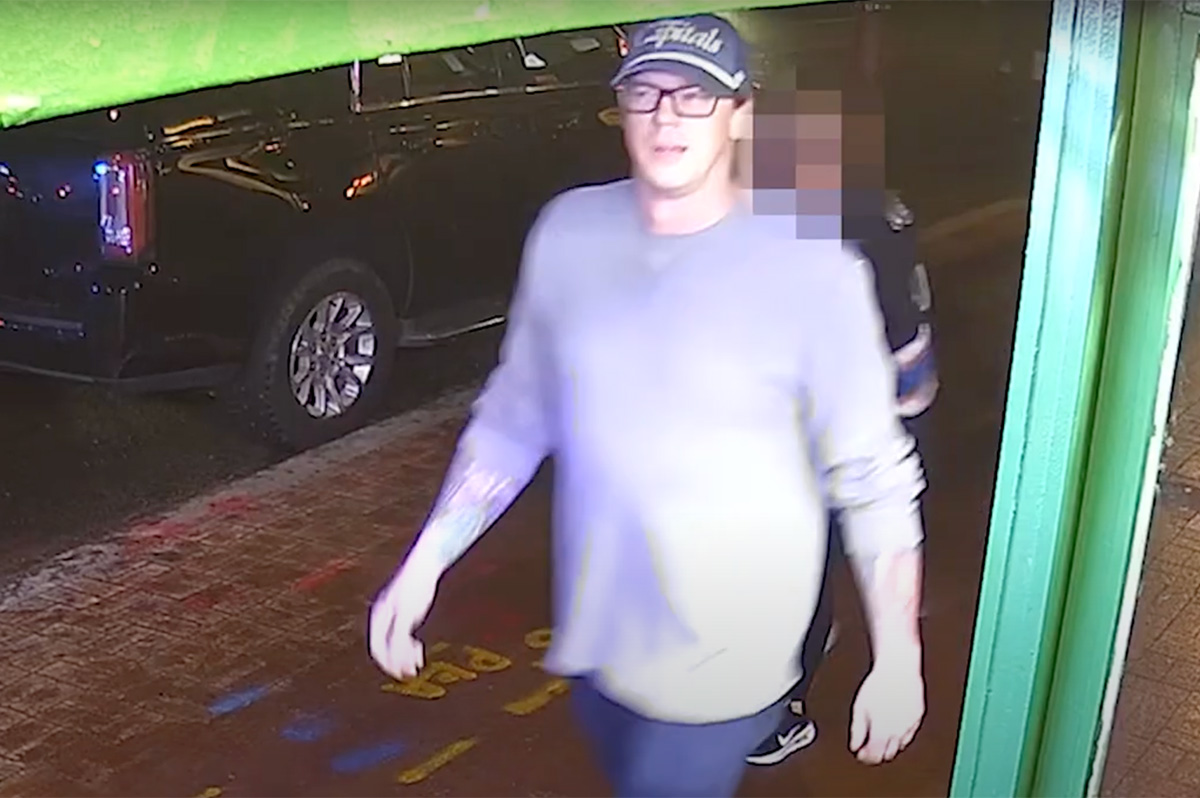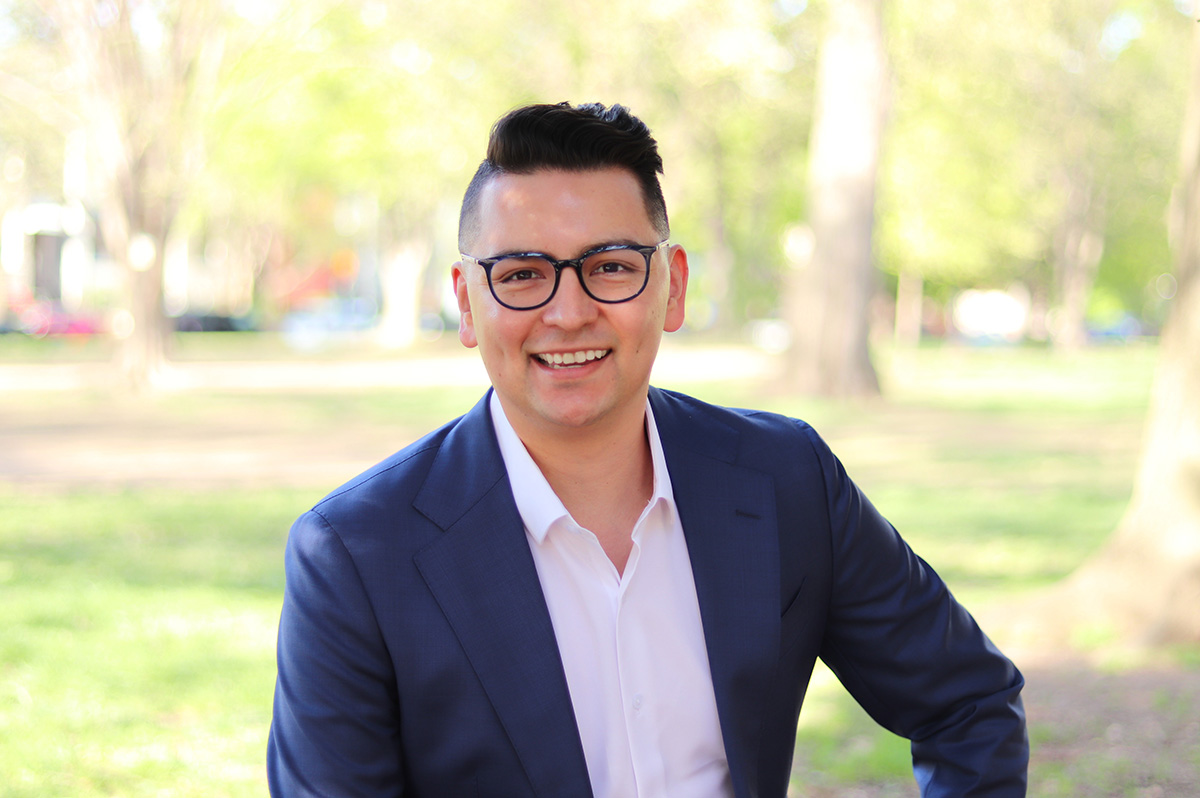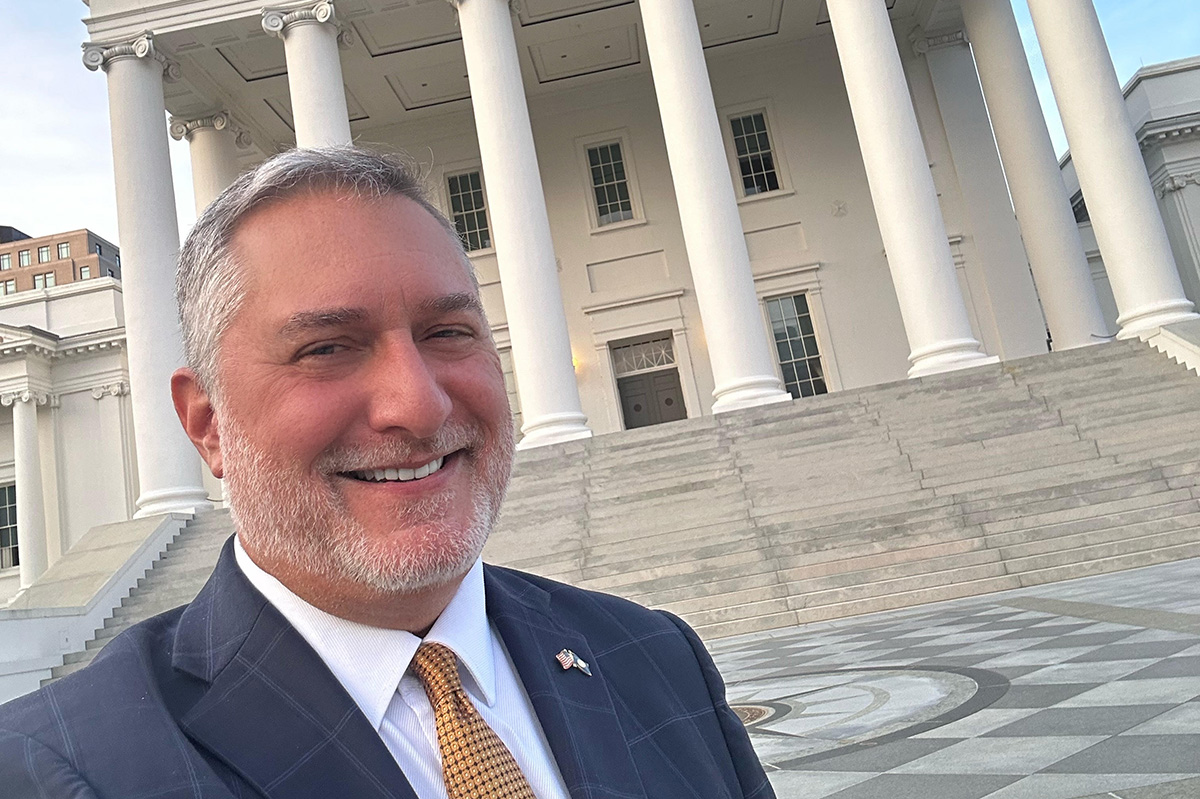Local
Marriage, trans bills get boost in Md. House
Valentine’s Day picked for lobbying on both measures

The same-sex marriage and transgender non-discrimination bills pending in the Maryland legislature cleared another hurdle last week when the speaker of the House of Delegates appointed a majority of supporters of the two bills to the committees that must first approve them.
House Speaker Michael Busch (D-Anne Arundel County) had been expected to retain a majority on the House Judiciary Committee in favor of the marriage equality bill as he has in past years, and did so again on Dec. 29.
But officials with Equality Maryland, the statewide LGBT advocacy organization, were less certain about the makeup of the House Committee on Health and Government Operations. That panel has jurisdiction over a pending bill that would ban employment discrimination based on gender identity and expression, which would protect transgender people. In past years, the panel has not taken a vote on the transgender bill.
Equality Maryland Executive Director Morgan Meneses-Sheets said the group was delighted with Busch’s decision on Dec. 29 to also name at least 13 supporters of the transgender measure to the 23-member Health and Government Operations Committee. The action ensures that the bill will be reported out of committee for an up or down vote in the House of Delegates.
In early December, a majority of pro-marriage equality members were named to the Maryland Senate’s Judicial Proceedings Committee, ensuring for the first time that a same-sex marriage measure would clear that key panel and reach the Senate floor for a vote. Up until now, the Judicial Proceedings Committee has blocked the marriage bill from coming to a floor vote.
“We want to move the marriage bill first in the Senate and the gender identity bill first in the House,” Meneses-Sheets said in discussing the timetable planned for the bills among a coalition of supporters.
She said further refinement of the timetable for moving both measures was to be discussed Wednesday in a conference call between Equality Maryland officials and all seven members of the legislature’s gay and lesbian caucus.
Similar to past years, Meneses-Sheets and others advocating for the two bills believe there appear to be enough votes to pass the marriage bill in the House. Supporters in the Senate believe they have the 24 votes needed to pass the marriage bill on an up or down vote but were less certain over whether they have the 29 votes needed to stop an expected filibuster by same-sex marriage opponents.
“The question is whether we can get cloture to break a filibuster,” said Sen. Jamie Raskin (D-Montgomery County), who supports both the marriage equality and transgender non-discrimination bills.
“That’s the mystery at this point,” he said.
Raskin said he was not familiar enough with the positions of his colleagues on the transgender bill to predict its outcome other than to say he sees support growing for that measure.
Sen. Richard Madaleno (D-Montgomery County), who is gay, said on Wednesday he’s more confident in the prospects for the marriage bill.
“I have never been so optimistic about getting this done,” he said. “Today at lunch I sat quietly by myself with a list of the members of the new Senate going over again and again in my head where the votes are, and I’m feeling really good right now both for the floor vote and the cloture vote.”
Madaleno is among seven out gays and lesbians now serving in the Maryland legislature — one in the Senate and six in the House — who said they will push hard from the inside to pass both the marriage and transgender rights bill.
Meneses-Sheets said Equality Maryland has scheduled a lobby day for Feb. 14 on Valentine’s Day, where the group hopes large numbers of LGBT Marylanders and their straight supporters will come to the state capital in Annapolis to push for both bills.
She said the group is inviting LGBT people to bring family members with them to the all-day lobbying event, with the intention that they visit the offices of members of the Senate and House of Delegates from all parts of the state.
“We’re so close that it will take just a handful of votes to push this through,” she said of the marriage bill. “The electorate is with us on this. The young voters are with us on this issue.”
Concerning the transgender bill, she said its prospects “look good on the floor of the House” but “there may be challenges” in the Senate.
Among the challenges, she noted, are arguments by opponents that a transgender non-discrimination measure would enable men dressed as women to harass women in women’s bathrooms in public places.
Transgender activists have disputed the so-called “bathroom” argument, which usually surfaces when transgender non-discrimination legislation is introduced.
Mara Keisling, executive director of the National Center for Transgender Equality, has said no reports of women being targeted in bathrooms have surfaced in any of the states, cities or counties where transgender non-discrimination laws have been adopted.
“It’s a myth,” she said.
“We need to persuade people that you should be judged on the merits when it comes to your job,” said Meneses-Sheets. “It’s an economic issue.”
She said Equality Maryland is bringing on three more full-time staff members to work on the two bills beginning Jan. 12, when the Maryland General Assembly opens its 2011 session.
The session lasts for just 90 days, a development that LGBT activists say gives them only until April 11 to secure the passage of the marriage and transgender rights measures.
“We have a lot of work to do in a short time,” said Meneses-Sheets.
Madaleno said that under the longstanding practice in the General Assembly, nearly all important or controversial bills don’t come to a final vote until the last two or three weeks of the session in April.
A late passage of both the marriage and transgender rights bill would make it more difficult for opponents to collect the required signatures for a referendum to kill the bills. Nearly all observers of the General Assembly expect opponents to take out petitions to call a referendum, which would stop the bills from taking effect until after voters decide on the issue — assuming the required number of petitions is obtained.
Under the state constitution, one-third of the required number of petition signatures must be obtained by the end of May and the remainder of the signatures needed must be collected by the end of June. The gathering of petitions cannot begin until both houses of the General Assembly passes a bill being challenged. That means it would be to the advantage of supporters of the two bills to wait until the end of the session to pass them.
The number of signatures needed is three percent of the qualified voters in the state based on the total number of votes cast in the most recent election for governor.
District of Columbia
D.C. police seek help in identifying suspect in anti-gay threats case
Victim threatened with assault, called ‘faggot’ as he left Capitals game

D.C. police are seeking help from the public in identifying a male suspect whose image was captured by a video surveillance camera after he allegedly shouted anti-gay slurs and threatened to assault a man at 6th and H Streets, N.W. on March 20 at about 9:54 p.m.
A police report says the victim told police the incident took place shortly after he exited the nearby Capital One Arena where he had attended a Washington Capitals hockey game.
The police report says the incident began when the victim saw the suspect yell a racist slur at a person behind the victim and started to berate a valet operator.
“Suspect 1 then turned his attention to Victim 1 and called him a ‘faggot’ among other homophobic slurs,” the report says. It says the victim then used his phone to record the suspect, prompting the suspect to walk away before returning and “snatching” the phone from the victim’s hand.
“Suspect 1 walked several feet as Victim 1 followed, requesting his phone back,” the report continues. “Suspect 1 stopped and turned to Victim 1 and while yelling other obscenities exclaimed ‘if you keep recording, I’m going to kick your ass.’” The report concludes by saying the victim was able to recover his phone.
It lists the incident as a “Threats To Do Bodily Harm” offense that is a suspected hate crime.
“Anyone who can identify this suspect or has knowledge of this incident should take no action but call police at 202-727-9099, or text your tip to the Department’s TEXT TIP LINE at 50411,” according to a separate police statement released April 23.
The statement says police currently offer an award of up to $1,000 to anyone who can provide information that leads to an arrest and indictment of the person or persons responsible for a crime committed in D.C.
D.C. police spokesperson Tom Lynch said the case has been under investigation since the incident occurred on March 20. He said the video image of the suspect, most likely obtained from a security camera from a nearby business, was released to the public as soon as it was obtained and processed through the investigation.
District of Columbia
Wanda Alston Foundation names new executive director
Longtime LGBTQ rights advocate Cesar Toledo to succeed June Crenshaw

The Wanda Alston Foundation, the D.C.-based organization that has provided housing and support services for homeless LGBTQ youth since its founding in 2008, announced it has appointed longtime LGBTQ rights advocate Cesar Toledo as its new executive director.
In an April 22 statement, the organization said that as part of a planned leadership transition launched in November 2024, Toledo will succeed June Crenshaw, who Alston Foundation officials and LGBTQ community activists say has led the organization with distinction in her role as executive director for the past nine years.
In a statement released last November, the foundation announced Crenshaw was stepping down from her role as executive director after deciding to “to step into her next chapter.”
“June’s leadership has been truly transformative,” said Alston Foundation Board Chair Darrin Glymph in the group’s April 22 statement. “We are immensely grateful for her dedication and equally excited for the energy and experience that Cesar brings to lead us into this next chapter,” Glymph said.
“A seasoned LGBTQ+ advocate, Cesar brings over a decade of experience leading national campaigns, shaping public policy, and building inclusive communities,” the statement released by the group says. “Most recently, he served as the National LGBTQ+ Engagement Director for the Harris for President Campaign and has built a career focused on advancing equality and equitable education,” it says.
Biographical information about Toledo shows that immediately prior to working for the Harris For President Campaign, he served since April 2023 as deputy director for Democrats for Education Reform DC (DFER DC), a political group that helps to elect candidates for public office committed to quality education for all students, including minorities, people of color and LGBTQ youth.
Before joining DFER DC, Toledo served as political director for the LGBTQ+ Victory Fund, where he assisted in electing out LGBTQ candidates to all levels of public office across the U.S.
“I’m really excited about joining the Wanda Alston Foundation,” Toledo told the Washington Blade. “After a decade of working at the intersection of politics and policy and advancing political candidates and equitable education here in D.C., I wanted to shift my career to direct services to the most vulnerable folks in the LGBTQ+ family and our homeless youth,” he said.
Among other things, he said he would push for increasing the Alston Foundation’s visibility and mainlining its services for LGBTQ youth at a time when the national political climate has become less supportive.
A statement on its website says the Alston Foundation was founded in 2008 “in memory of Wanda Alston, a fierce LGBTQ+ activist, national advocate, and government official who was admired by District residents.”
The statement adds, “The foundation opened the first housing program in the nation’s capital in 2008 providing pre-independent transitional living and life-saving support services to LGBTQ+ youth.”
In a separate statement, the Alston Foundation announced it would hold a “thank you” celebration of appreciation for June Crenshaw from 6-8 p.m. on May 20 at Crush Dance Bar located at 2007 14th Street, N.W. in D.C.
“Let’s come together to celebrate her dedication and commitment for everything she has done for the LGBTQIA homeless youth population,” the statement says.
Virginia
Gay talk show host wins GOP nom for Va. lieutenant guv
John Reid becomes first out gay nominee for statewide office in state

John Reid, a conservative gay radio talk show host in Richmond for many years, this week secured the Republican nomination for the office of lieutenant governor in Virginia, becoming the first known openly gay person to be nominated for a statewide office in that state.
Reid secured the nomination after his only rival in the Republican primary, Fairfax County Supervisor Pat Herrity, dropped out of the race this week for health reasons.
Herrity’s decision to withdraw from the race finalized the GOP nominees for Virginia’s three statewide contests in the November general election in what political observers are calling an unusually diverse GOP slate.
Current Virginia Lt. Gov. Winsome Earle-Sears, a Black woman, captured the GOP nomination for governor without a GOP opponent. Jason S. Miyares, a Hispanic man, is running for re-election as Virginia attorney general without a GOP rival. And Reid, a gay man, is the GOP nominee for lieutenant governor.
Reid will face one of six Democratic candidates for lieutenant governor who are competing in the June 17 Democratic primary.
The Blade spoke with Reid on Tuesday. Below is a partial transcript of that interview.
Blade: Is there a message you have for LGBTQ voters in Virginia, including Democrats, for why you think they should vote for you?
Reid: Well, the thing that I would say to gay voters who are looking and examining the candidates, is that I was out of the closet as a gay Republican publicly in very difficult rooms where people weren’t accepting of gay men – long before Donald Trump said I don’t care about this stuff.
And long before polite society said this was OK. So, in the ‘90s I came out on television and said on Oct. 11 – it was on National Coming Out Day. It was probably in 1996 or 1997. I started at the TV station in 1994. So, it was a couple of years into it.
I came out and said you never know your news anchor could be gay on National Coming Out Day. And everyone was appalled. How can you say this? You’re not supposed to say something like that. So even though I’m a Republican I know some people in the LGBT community are reflexively hostile to Republicans.
I took that step in public, and I think I helped change a lot of minds within the Republican Party and within central Virginia, which continues to be a pretty conservative place by being true to who I am. I spoke out in meetings around Republican staff and legislators and said I think we are not doing the right thing by being hostile to gay marriage.
We talk about the importance of family – Republicans talk about the importance of family, the importance of marriage as a fundamental building block of society. And a gay marriage is a net positive. Is it biblical to people who are following traditional Christian theology? No. But is it good for our society to have people in committed relationships? I think yes.
When we were going through the debate over gays in the military I said I see no reason that someone who is qualified to be in the military and can meet every single standard that everyone else is asked to meet, why should they not be in the Naval Academy, the Air Force Academy, West Point? Or serving as a grunt in active duty. Why would we exclude those people?
And those were very unpopular positions within the Republican Party.
Blade: Your campaign website says you have supported civil unions for same-sex couples. I could have missed seeing it, but I didn’t see an expression of support for gay marriage. Are you saying now that you support full same-sex marriage?
Reid: You know, you’re right. There is a distinction. And I think marriage is completely legitimate. Civil unions – if you want to go and sign paperwork at the courthouse – that’s great. If you want to be married and if a church wants to marry you if you find a church and religious leader and group that wants to bless that – that’s what I hope to do with my partner now.
Sometime in the near future I hope we will be married. And it’s very important to me as a Christian to be married in a church. So, that’s interesting. Most people would not draw that distinction. I appreciate that you’re drawing a distinction. I’m supportive of both.
Blade: Did you say you worked for a member of Congress? Can you say who that was?
Reid: George Allen, the senator from Virginia. And, of course, you and I – I know you’ve covered so many stories like this that you’ve brought together. But it was a very difficult position. When I started with Sen. Allen, he had a very libertarian attitude about this. The [Virginia State] constitutional amendment was not necessary. There was no need to go down that road.
And of course President Bush – George W. – was very assertive during the 2004 campaign. And then the issue continued to bubble up and you know we wound up with this amendment in the Virginia Constitution that banned gay marriage until the Supreme Court decision. And I was not supportive of that. And I voted for my boss, my senator, who I respected and still do respect.
Blade: Your website shows that your support for the gay community does not extend to the transgender community.
Reid: Yeah, I hate this. But I do think that our current focus on trans issues is where the gay rights movement has jumped the shark. And I think we’re losing support that we worked very diligently for decades to build with the average person. And I’m puzzled that the former leaders of the Human Rights Campaign had presidents when Elizabeth Birch and others – I don’t know what their stance is today.
I do recall that all of us who talked about gay rights issues focused on normalcy and that we would meet every standard that everyone else met. That all the vile things that were said about gays being pedophiles and grooming children – that simply was not true.
And I think we have stumbled into a very unfortunate and dangerous territory where we’re almost taunting the average person with an insistence that they accept drag queen story hour and the provocative books and provocative media that the average person would say, ‘You told us you were normal. – quote unquote normal – and now you are peddling an agenda which we don’t agree with and you’re being really aggressive about it.
And that’s really a difference. I know you’ve been covering it for a long time. I don’t know if you agree with this. I think we are peddling a very different political agenda today than the gay community was 20 years ago. And I think we should restrain ourselves and be cautious about that. And I think we’re in dangerous territory with the general population. And I’d urge caution about that.
Blade: Online reports show that there are as many as six Democratic candidates competing for the lieutenant governor’s position in the June 17 Democratic primary. Do you know any of them?
Reid: I’m familiar with most of them. Some are from the Richmond area. And I believe they are all very supportive of gay rights, which is I think a good thing. My reason for challenging them as a Republican – and I think there are other places where there is a lack of appropriate leadership and good judgment. And so, I don’t expect the gay issue would be a real issue. The trans issue may be a point of contention in the race.
But I don’t think the gay issue – and I do draw a distinction between the two — I don’t think that will be a real dividing line with those Democrat[ic] candidates.
Blade: So unlike when you were a TV news anchor, on your radio talk show were you able to offer more opinions and commentary?
Reid: That’s correct. There was a lot of opining, no script. So, I was able to tell stories about how I traveled to Miami, and I went to Washington. I went to the Kennedy Center and shared some of my life and lifestyle as appropriate with the audience.
Blade: Well, thank you for this interview.
Reid: I’m happy to talk to you. One of the reasons I called you back is that the political consultants have always told me don’t talk to anybody that might disagree with you. And I reject that. I have already lived 30 years as an out gay man. And it has been very difficult. And I would like to make it easier for the next generation to live their authentic selves. … Calling you and talking to you against the advice of all these people who say never do that, I’m hopeful that my willingness to engage and be candid will ultimately be well received, I hope.

















